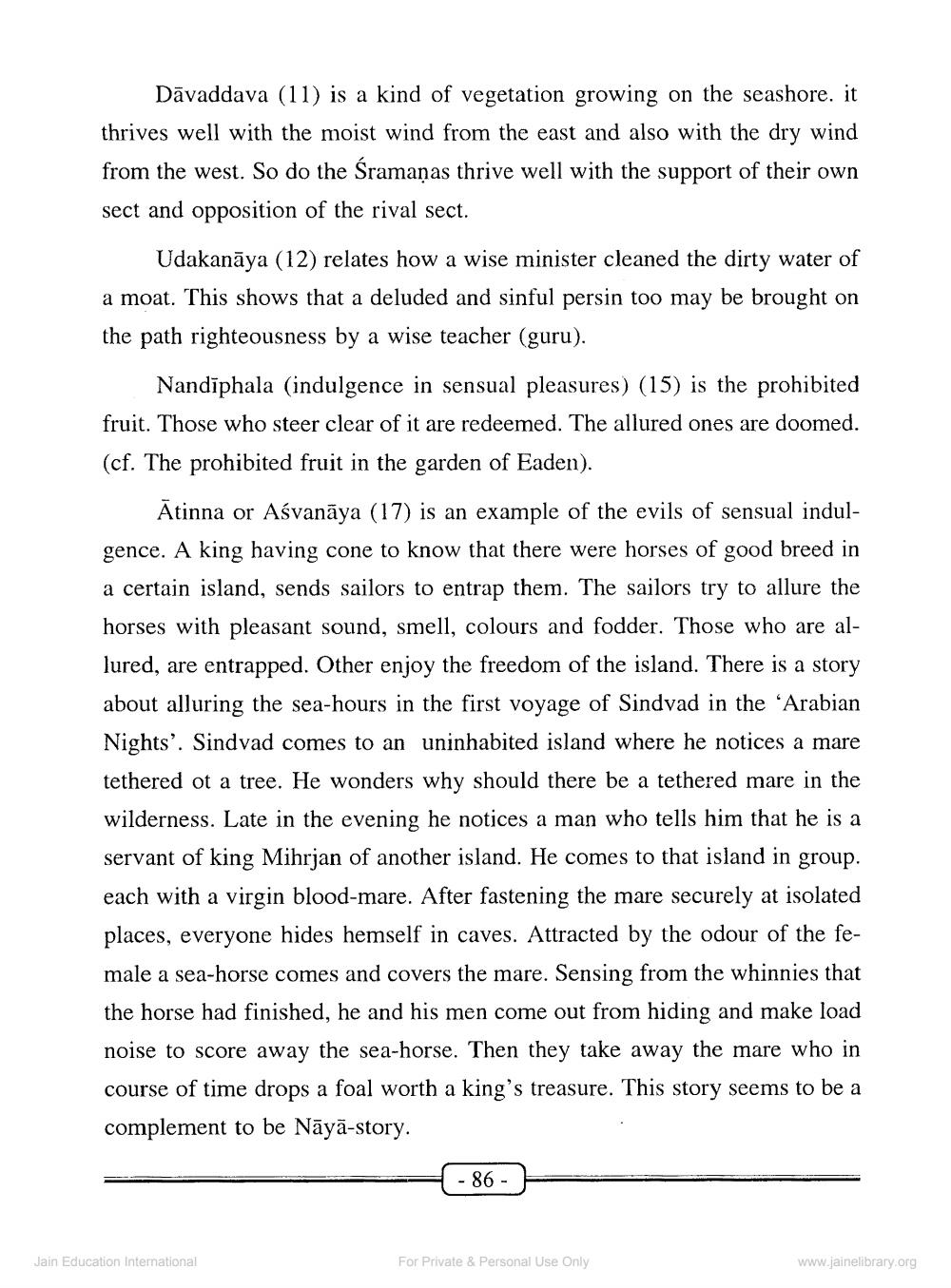________________
Dāvaddava (11) is a kind of vegetation growing on the seashore. it thrives well with the moist wind from the east and also with the dry wind from the west. So do the Śramaņas thrive well with the support of their own sect and opposition of the rival sect.
Udakanāya (12) relates how a wise minister cleaned the dirty water of a moat. This shows that a deluded and sinful persin too may be brought on the path righteousness by a wise teacher (guru).
Nandīphala (indulgence in sensual pleasures) (15) is the prohibited fruit. Those who steer clear of it are redeemed. The allured ones are doomed. (cf. The prohibited fruit in the garden of Eaden).
Ātinna or Aśvanāya (17) is an example of the evils of sensual indulgence. A king having cone to know that there were horses of good breed in a certain island, sends sailors to entrap them. The sailors try to allure the horses with pleasant sound, smell, colours and fodder. Those who are allured, are entrapped. Other enjoy the freedom of the island. There is a story about alluring the sea-hours in the first voyage of Sindvad in the 'Arabian Nights'. Sindvad comes to an uninhabited island where he notices a mare tethered ot a tree. He wonders why should there be a tethered mare in the wilderness. Late in the evening he notices a man who tells him that he is a servant of king Mihrjan of another island. He comes to that island in group. each with a virgin blood-mare. After fastening the mare securely at isolated places, everyone hides hemself in caves. Attracted by the odour of the female a sea-horse comes and covers the mare. Sensing from the whinnies that the horse had finished, he and his men come out from hiding and make load noise to score away the sea-horse. Then they take away the mare who in course of time drops a foal worth a king's treasure. This story seems to be a complement to be Nāyā-story.
- 86 -
Jain Education International
For Private & Personal Use Only
www.jainelibrary.org




